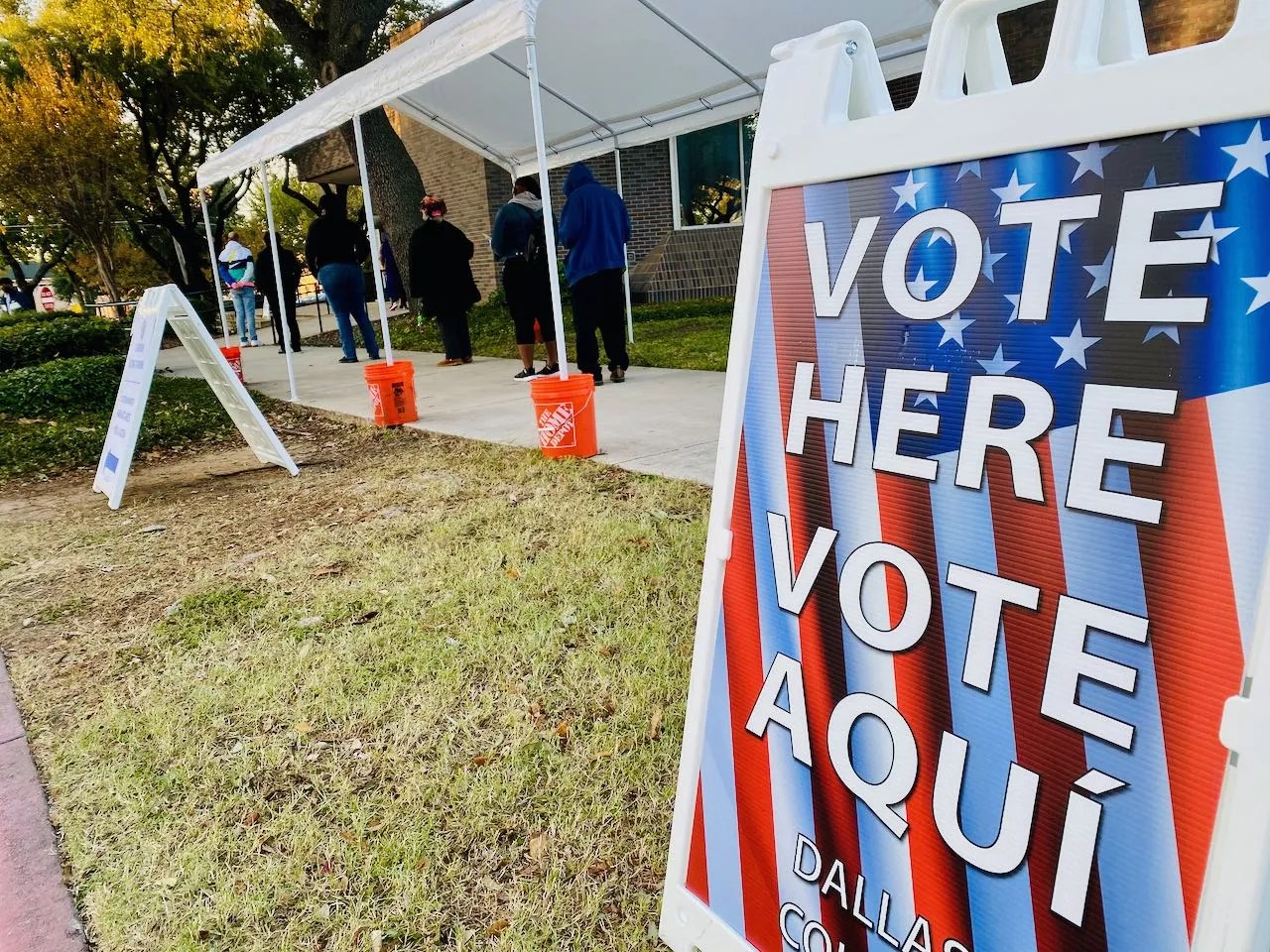
Lauren Drewes Daniels

Audio By Carbonatix
In November, Texans across the state will head to the polls to cast their votes in midterm elections widely viewed as a referendum on President Joe Biden’s first two years in office.
But as state and national races heat up, election administrators in Texas and elsewhere are facing harassment, conspiracy theories, threats and “unsubstantiated accusations of fraud,” according to a report published last week by the U.S. House Committee on Oversight and Reform.
The report identified Arizona, Florida, Ohio and Texas as “states where election misinformation appeared to be having a significant impact.”
“The threat posed to American democracy by election misinformation has changed and increased dramatically in the past two years,” the report noted.
That conclusion likely comes as no surprise to voters in Texas, where Gov. Greg Abbott, Attorney General Ken Paxton and Republican state lawmakers spent the last legislative session promoting a slew of so-called “election integrity” bills.
Supporters of those bills claimed they’re necessary to combat what they describe as widespread voter fraud, while critics have sounded the alarm on civil rights concerns and have noted that voter fraud is, in fact, rare.
Uncommon or not, the issue of voter fraud led to a torrent of death threats against an election administrator in Texas.
Although the congressional report doesn’t provide a name, the Texas Tribune has identified the person as Tarrant County’s election administrator, Heider Garcia.
According to the congressional report, social media posts and messages during the November 2020 election targeted that administrator, threatening to “end [his] bloodline” and to “hang him when [he’s] convicted for fraud and let his lifeless body hang in public until maggots drip out of his mouth.”
The president of the Texas Association of Elections Administrators was quoted in the report as blaming widespread misinformation for the election integrity bills.
During public input on the election integrity bills, debate regularly included “broad generalizations of alleged fraud during the conduct of the elections and by mail ballot,” supposed electoral code violations, “interference with poll watchers” and “misleading information” about Harris County’s elections administrator in 2020, the association’s president said.
In a report earlier this month, the Brennan Center for Justice noted that Texas has already “seen remarkable increases in mail ballot rejections” thanks to the voting changes put in place since the November 2020 elections.
Last month, Texas Secretary of State John B. Scott’s office said four counties would have their 2020 and 2022 electoral results audited: Cameron, Eastland, Guadalupe and Harris.
In September 2021, not long after former President Donald Trump urged Gov. Abbott to conduct a “forensic audit” of the 2020 elections, the Secretary of State’s Office announced it would probe results in Dallas, Harris, Tarrant and Collin counties.
The following month, Abbott picked Scott to fill the Secretary of State’s position. Scott had briefly represented Trump in a lawsuit challenging electoral results in Pennsylvania.
Public records obtained by American Oversight, a watchdog group, show that after taking office, Scott agreed to meet with prominent election conspiracy theorist Patrick Byrne, a choice his office recently defended in an email to the Observer.
“Secretary Scott meets with people and organizations all the time, hears out their concerns about election integrity, and asks them to submit any evidence of illegal activity they have to our office so that we can refer it over to the Attorney General’s office for investigation, if warranted,” Sam Taylor, the assistant secretary of state for communications, said in that email.
Over the weekend, the Fredericksburg Standard reported that in Gillespie County, located in Central Texas, local elections administrator Anissa Herrera resigned, citing death threats and being stalked in the wake of the November 2020 vote.
“After the 2020 [election], I was threatened, I’ve been stalked, I’ve been called out on social media,” Herrera told the newspaper. “And it’s just dangerous misinformation.”
Midterms are scheduled for Nov. 8. Texans will vote for governor, lieutenant governor and attorney general, as well as U.S. House seats and several other state offices.